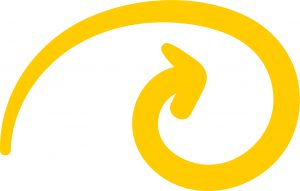Picture your average high school classroom. There might be 20 or so students wearing masks and sitting 6 feet apart—if they are even in a classroom and not on Zoom. Days of passing notes in class, meeting up for study groups or school dances and attending football games together were almost nonexistent.
The COVID-19 pandemic has turned the high school experience upside down. And although teenagers and young adults continue to prove their resiliency, life’s challenges are certainly taking their toll even more greatly than before the pandemic.
The fact is, in that average high school classroom, nearly one in five of those students are likely living with a mental, emotional or behavioral challenge—be it anxiety, depression or ADHD. And according to the CDC, only about 20% of children with mental, emotional or behavioral needs receive care from a specialized mental health care provider.
How can breakthroughs occur amid these circumstances? Those in healthcare focused on feedback straight from the source—the young people. They heard a common request: give them a tool that speaks their language, makes communicating about their concerns easier and acts supportive rather than controlling and directive.
The result? A new platform with a different approach to mental health support that recently earned recognition as one of Fast Company’s 2021 World-Changing Ideas. Scout by Sutter Health™ is one-of-a-kind, virtual tool that supports youth ages 12-26 who experience anxiety and/or depression. Additionally, it gives parents, loved ones or other close confidante adults their own resources to support the young people in their lives who are navigating mental health challenges.

Kiya Johnson
Kiya Johnson was one of the first people to use Scout by Sutter Health™. The 18-year-old, who is currently taking classes at Ohlone College, heard about the resource through her therapist who recognized that Johnson might want some support while the therapist went on maternity leave.
“Even though it doesn’t replace therapy, it was nice to just have somebody check in every once in a while,” she said. “I also had resources, like tips for meditation and ways to just basically get [my] feelings out and come to terms with things.”

Giraffe icon from Scout by Sutter Health™
Non-clinical human guides, also known as docents, welcome young people via text or a phone call. The users then respond to clinically validated surveys delivered to their phones. Based on their individual responses, they receive personalized web and mobile-friendly content to support their unique needs. Focus areas include body, mind, and spirit for all participants.
For those under age 18, animal personas introduce the topics. For those over 18, graphically unique icons present the topics. Sample topics include understanding symptoms, mindfulness exercises, connecting with loved ones, sleep, nutrition, physical activity, and more.

Scribble icon from Scout by Sutter Health™
The caregiver component also helps differentiate Scout by Sutter Health™. It gives parents, families or other designated caregivers their own awareness, education and tools that are separate, yet parallel to the youth content. Sample topics for caregivers include understanding the loved one’s condition, tips on mindfulness, medication adherence and self-care.
“Mental health matters can have a profound effect on the entire family,” said Larry Marx, M.D., a board-certified psychiatrist in child/adolescent psychiatry and general psychiatry, as well as director of integrated care for Sutter Health’s Mental Health and Addiction Care team. “When we can offer support to youth and their caregivers in tandem through an easily accessible and relatable format, it can be beneficial for all.”
Pediatricians or clinical teams already giving patients mental health support refer participants. The tool can be more widely available through public or private partnerships Sutter shares with others such as employers, insurance providers, school districts, colleges or universities.





